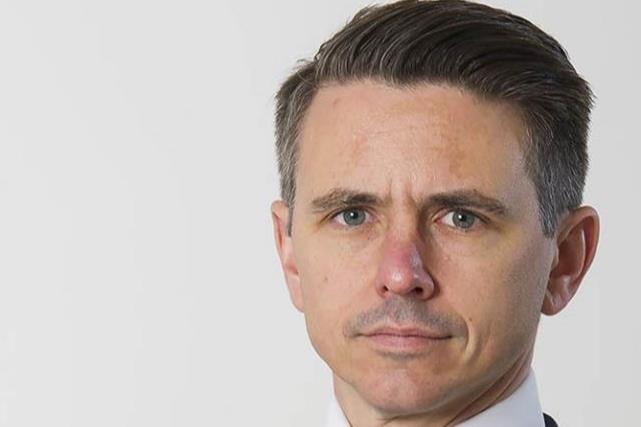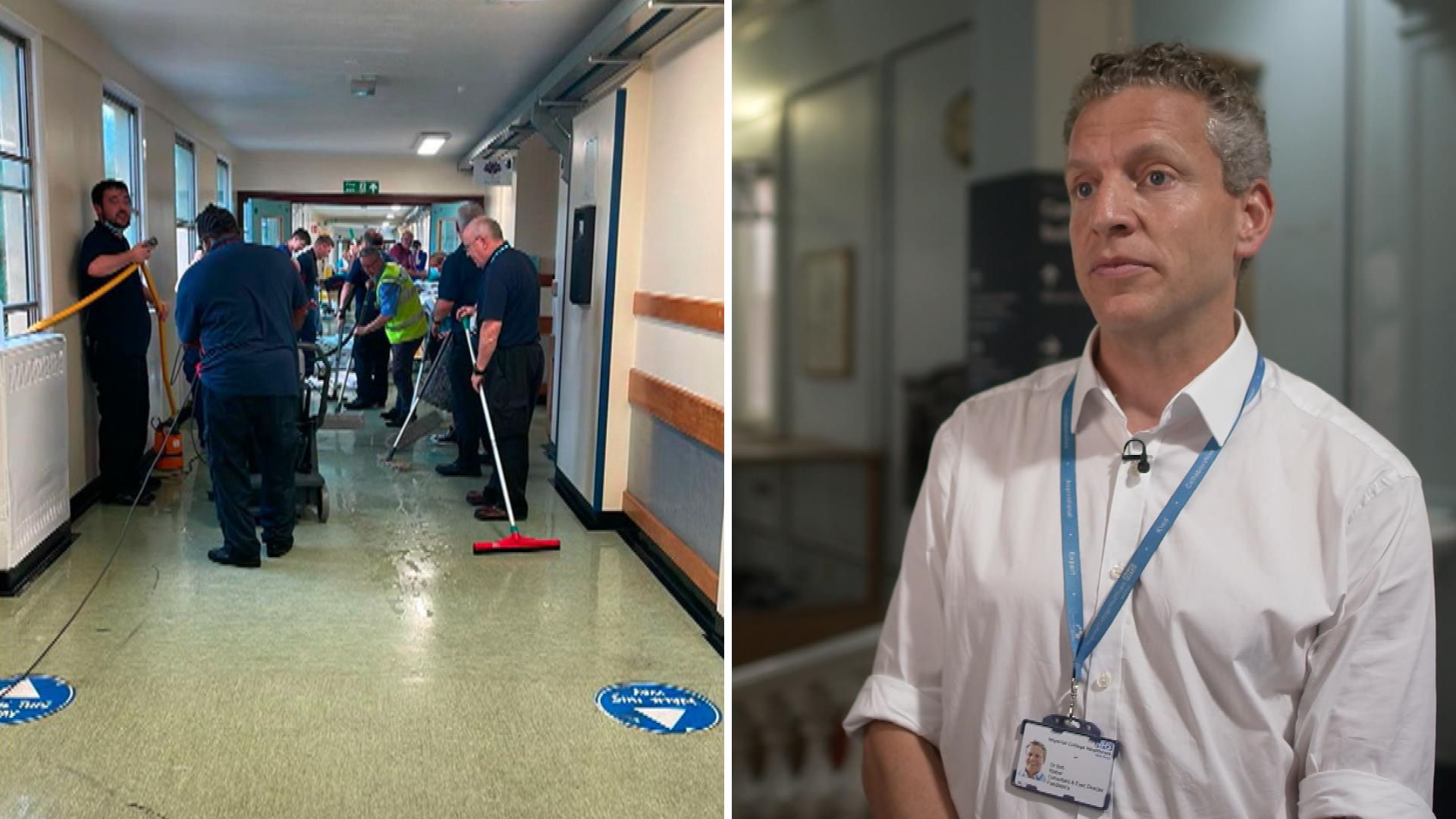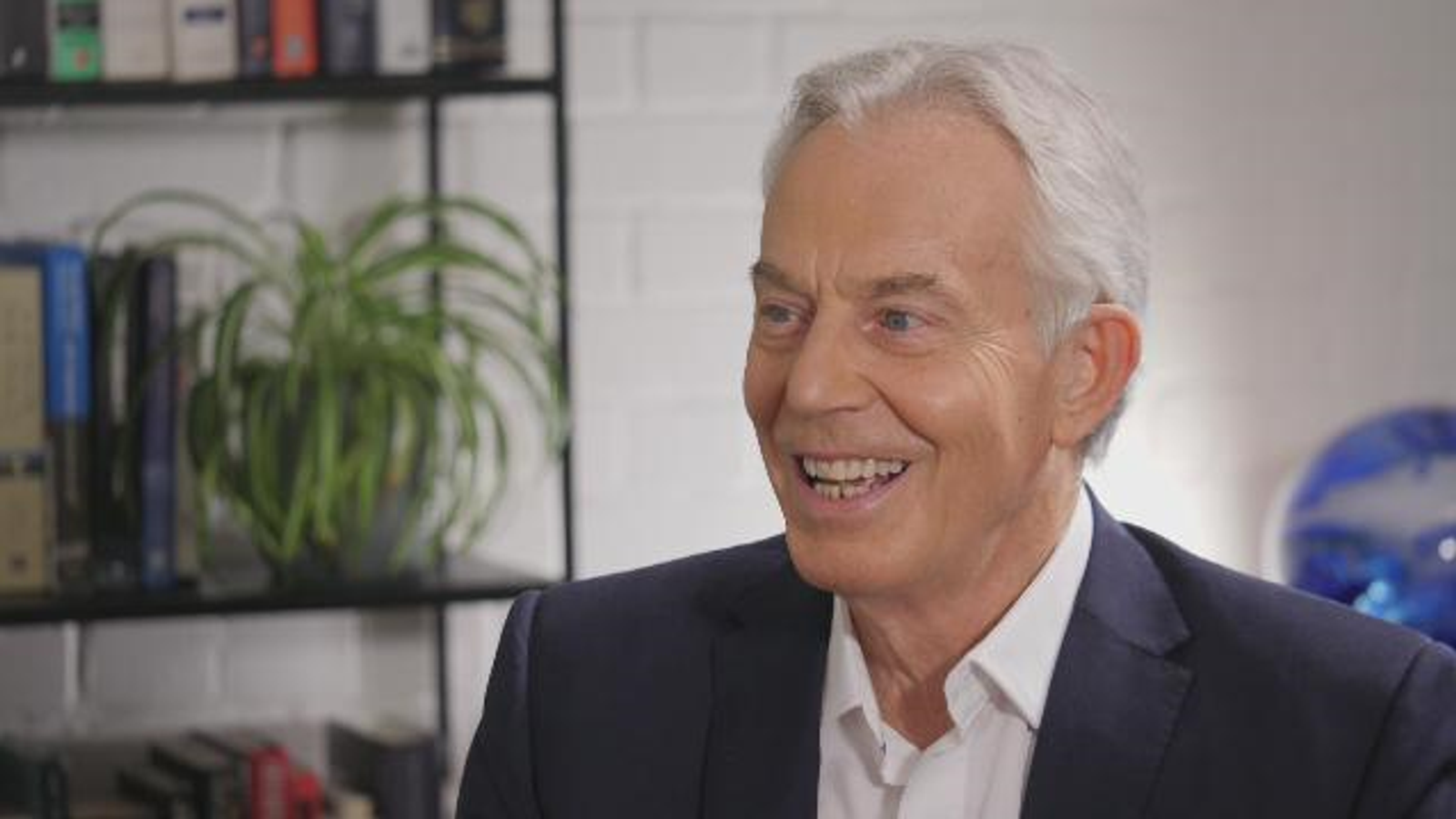Cowper’s Cut 279: The unfunded pay rise, fictional "reprioritisation and greater efficiency" and the PM’s humiliation kink for the BMA

Public getting more and more pessimistic on direction of Britain - no post pandemic recovery...... #changelectioncoming pic.twitter.com/GkscSPEs9C
— Ben Page (@benatipsos) July 14, 2023
There's real competition for the coveted title of this this week's funniest story in health policy and politics.

Our Saviour And Liberator Andrew Lansley would be so proud.

The news from Health Service Journal that NHS England's director of communications James Lyons is leaving one totalitarian organisation for another (he's off to TikTok) vied with the wonderful Mirror exclusive that Secretary Of State For The Next Fifteen Months Steve 'The Banker' Barclay plans to give fellow MPs tours of their constituencies' share of the Forty New (If Fictional) Hospitals using virtual reality headsets.
EXC: Health Secretary gives virtual reality tours of 40 new hospitals as they don't exist https://t.co/95zFutP8pJ
— John Stevens (@johnestevens) July 12, 2023
Cue gags about the Fictional Forty existing only in virtual reality, the Metaverse, Second Life et al. After virtual wards, I suppose it's the logical next step.
You don't always learn lots from the comments under HSJ news stories, but the views of NHS England's comms control-freakery are remarkably near to unanimous.
NHSE has long been a deeply unhappy ship, which is not surprising given the mergers and redundancies under way, but its position as an organisation that is so evidently to a large extent neither use nor ornament leads it towards becoming abolition-prone.
The current Government may well be too useless and weak to actually do anything about this: it is certainly too useless and weak in most areas.
But if the near-redundancy of NHSE becomes a more publicly-accepted nostrum, some of the consequences will be problematic. There are a few smart, mobile and value-adding people people dotted throughout NHSE, who do most of its actual work. If they see it as future-free, and so go, then some important things might stop, or be done badly (or even more badly).
Far too many, if not the bulk of NHSE staff are career narcissists, system functionaries, process junkies and meeting-lovers: sometimes, all four at once. They do NHSE's imagined work. The centre is fated to be somewhat unloved, but NHSE is now so widely not just unloved but unrespected across the service as to generate problems, if we consider the model of an independent organisation to run the NHS still potentially valuable.
NHSE has, of course, not been independent any more since the passage of the 2022 Act turned it into a wholly-owned subsidiary of the Department For Health But Social Care.
The Banker's HSJ interview
However, I think we may declare this week's winner to be the interview that The Banker gave to HSJ editor Alastair McLellan.
It is so unintentionally hilarious as to achieve the status of an art form.
The Banker told HSJ that “bringing inflation down matters to the economy, but it also matters to the NHS staff as well, because they, as with the rest of society, are impacted through high inflation.” We must presume that he said this in reply to questions about the pay dispute.
The roaring inflation of these past eighteen months was caused by public sector pay rises in the same way that the NHS is currently a well-run system, i.e. not at all. Sunday Times economics editor David Smith explains this rather clearly.
Asked if the Government has to choose between settling the dispute with the junior doctors or giving up on the PM’s pledge to reduce waiting lists, Mr Barclay said he did not accept the premise that this was a “binary” choice.
This aged poorly. Within just two days, HSJ revealed that NHS England agreed to lower the targets for elective recovery. NHSE Director of Finance Julian Kelly said that this was due to the impact of junior doctors’ strike, and acknowledged the PM's pledge to reduce waiting lists before the next general election would be at risk if the industrial action continues.
HSJ's Henry Anderson has a good analysis of the circumstances and consequences.
Incentivised financial lying-watch
If this doesn't go viral I blame twitter's latest changes
— Henry Anderson (@HMAnderson39) July 3, 2023
Henry is also mapping the planned NHS deficits, which will keep him pretty busy as more of the incentivised financial lying becomes unavoidable.
Meanwhile, ITV News' Daniel Hewitt covered the extent of dilapidation of NHS facilities, reminding us that the NHS capital and maintenance backlog is over £10 billion, two-thirds of which is safety-critical.

The Irony Chancellor
Jeremy Hunt: Chancellor tells me “we won’t fund any public sector pay awards through additional borrowing” and that “I don’t want to pretend to people watching at home that this isn’t a very difficult time”. See full interview on #peston 10.45 ITV https://t.co/K3oY7K6sDh
— Robert Peston (@Peston) July 12, 2023
Lots of action this week, starting with the Chancellor's Mansion House speech. Mr Hunt took the associated media opportunity to tell ITV's Robert Peston that "we won't fund any public sector pay awards through additional borrowing".
Is Mr Hunt on course to be remembered as the Irony Chancellor?
The pay dispute in 'not going away' shock!
This year, PRBs are being asked to balance 3 conflicting things:
— Ben Zaranko (@BenZaranko) July 12, 2023
1) the need to recruit, retain and motivate suitable staff
2) affordability
3) impact on inflation
For example, see this from the remit letter to the NHS Pay Review Body. pic.twitter.com/nGHeUMEBjA
This is really not going away, as Ben Zaranko of the IFS pointed out.
The BMA got a close marking from the Mail, with this article on advice for junior doctors about how to spend their non-picket-line time during the strikes, and this on GMB protests on behalf of their members who are BMA staff whose pay has seen a real-terms cut.
The GMB union is seeking ‘pay restoration’ to 2011 levels, when its current pay system was put in place, claiming that those on lower salaries have seen their income eroded by 18.4 per cent and those on higher salaries by 15 per cent. That's quite witty, for the GMB.
So, how's the strike going?
Day 1 of Jr Dr strikes and @uclh have declared a ‘business continuity incident’ due to insufficient staffing to cover night shifts this evening. They say: “While we support our staff’s right to strike, we must ensure we can provide safe urgent and emergency care.” pic.twitter.com/Hqe61FHXNf
— Mark Thompson (@SkyNewsThompson) July 13, 2023
The Government tries 'Bazball' tactics on the strikes
The Government's attempt to regain the initiative over the industrial action smacks of the England mens' cricket team's 'Bazball' strategy: big hits and big hopes, and small regard for safety-first.
Instead, we’ve settled on a fair way to end the strikes.
— Rishi Sunak (@RishiSunak) July 13, 2023
✅ It’s a fair deal for workers.
✅ It’s a fair deal for taxpayers.
✅ And it’s a major breakthrough for this country.
PM Rishi 'The Brand' Sunak took to the Downing Street TV studio to announce that "there will be no more talks on pay".
Ahem.
There will be more talks on pay. https://t.co/ji7jI1c6Bi
— Andy Cowper (@HPIAndyCowper) July 13, 2023
Public service announcement: there will be more talks on pay.
"They shouldn't be on a picket line, they should be in a hospital."
— Channel 4 News (@Channel4News) July 14, 2023
Education secretary, Gillian Keegan, tells @krishgm junior doctors should be tackling the backlog of elective surgeries. pic.twitter.com/ZITlJsuAWz
Charmingly, our ironic education secretary Gillian Keegan claimed that an industrial dispute about pay is somehow unfair to the Government. She could not explain how.
The PM's humiliation kink for the BMA
By making cutting waiting lists one of his five pledges, and then trying to hardball a thoroughly resurgent BMA and deeply pissed-off clinical professionals, Mr Sunak has in effect strapped his genitalia to an anvil and handed the BMA a sledgehammer, while taunting them 'go on - show me what you've got!'
The BMA won't need to be asked twice, one suspects. You know the old joke ("Beat me!" begged the masochist: 'no", replied the sadist).
Mr Sunak is manifesting a humiliation kink for the BMA. We're all broad-minded adults in the world of health policy and politics, and what consenting adults do in their private lives is up to them, but doing this quite so publicly seems slightly sub-Prime-Ministerial.
Steve Barclay confirms details of the pay award for NHS doctors (many groups of whom are currently on strike).
— Henry Anderson (@HMAnderson39) July 13, 2023
Junior doctors get 6% plus a £1,200 bonushttps://t.co/1zvQkz7doO pic.twitter.com/9ILtHBUBHx
The briefings that the Independent Pay Review Bodies' recommendations would be delivered turned out to be accurate.
This is a fair increase and I am urging the unions still in dispute to end their industrial action.
— Steve Barclay (@SteveBarclay) July 13, 2023
More details 👇
2/2https://t.co/f0uAZEcBUt
The Banker took to the pages of the Sunday Times to try going over the BMA's heads and direct to striking consultants, claiming that "we stand ready to listen to consultants on how we can continue to work together on improving working conditions.”
“To the consultants who are still planning to go on strike this week over pay, despite our pay award and pension reforms, and following rapidly on from a walkout by their doctor in training colleagues, I now speak directly to you. You are an indispensable part of our NHS. I hope you see our decision as fair and reasonable, and call off your strikes.”
Given how the consultants voted for industrial action, to strike by 86% on a 71% turnout, The Banker's hope seems Pollyanna-ishly optimistic.
He had a go at a patient safety and care quality argument, asserting blithely that “we have a national mission to make the NHS strong again so it quite simply isn’t right to undertake disruptive industrial action. Every day that doctors are not on shift, tens of thousands of appointments and operations are cancelled.”
The Banker will doubtless be furious with whatever political party's been driving the NHS into the ground over these past thirteen years.
He undoubtedly mis-speaks with the claim that "we will fund this pay award through prioritisation within existing departmental budgets, with front line services protected". The NHS is not going to find the unfunded 2.5% of the pay rise without taking quite a bit of it from front line service budgets.
'But is this pay rise funded?'
In a word, no.

While there is a 6% cash offer, The Department For Health But Social Care has been told by ministers that it must fund the sum over the agreed and budgeted 3.5% with 'reprioritisation and greater efficiency'.
Or as it is known here in The Real World, 'cuts'.
Fictional reprioritisation and greater efficiency alert
It will be bracing, watching how this fictional "reprioritisation and greater efficiency" agenda works out in practice.
As OBR says, NHS Long-Term Workforce Plan is probably the biggest "unfunded spending commitment" in UK history, amounting to some £10s of billions *every year* over medium term.
— Jonathan Portes (@jdportes) July 16, 2023
Level of political/media debate on tax/public spending is genuinely pathetic.. pic.twitter.com/JjFoI88Nui
As economist Jonathan Portes observed, this pay rise is far from the only unfunded spending commitment, which the Office for Budget Responsibility spotted.
The 'I Contain Multitudes' Workforce Plan will prove quite the object of study to future public policy fans. This whole era will.
GMC training survey
The @gmcuk survey results are out
— Simon Fleming 🛠 (@OrthopodReg) July 11, 2023
Common themes of #burnout, #bullying #discrimination and #harassment
We absolutely need to do better. We are failing our colleagues, our profession and our patients with toxic behaviours. #medtwitter pic.twitter.com/z0A4GaDflJ
The latest GMC national training survey has some appalling statistics on trainee medical staff's experiences of working in the NHS.
It finds that "for trainees, burnout levels are once again on the rise. Across the UK, two thirds are now at high or moderate risk of burnout, the highest level since we started tracking this in 2018.
"There is also evidence that doctors in the early stages of their careers are experiencing negative behaviours more than their senior colleagues. One in five foundation trainees said they’d been blamed for something they didn’t do in their current post, compared to one in ten on specialty or core programmes.
"These issues are especially acute in certain specialties, with more negative responses from trainees in surgery, obstetrics and gynaecology and emergency medicine ... cultural issues are also taking their toll. Our survey shows that more than one in ten trainees have felt ‘intentionally humiliated’ in front of others. 27% said they’ve experienced micro-aggressions, negative comments or oppressive body language from colleagues.
"That is plainly unacceptable from a moral standpoint, but also a productivity one. The environment in which a doctor works plays a material role both in patient outcomes and staff satisfaction.
"There’s a very real risk that the negative trends we’re seeing could not only impact on patient care, but also undermine retention, pushing doctors to leave the training pathway, if not the profession entirely."
26% of all trainees think that their training is adversely affected because rota gaps aren’t dealt with appropriately. 25% do not think that rota design optimises their education and development. These are basic things, and not hard to fix. Why are they not being fixed?
You can't recruit your way out of a retention crisis, and you won't retain junior staff in a culture that is as problematic as this. And the market for healthcare staff is international.
The RTT backlog grows again
New figures on the RTT backlog saw it rise to a new record level of just a shade under 7.5 million. As ever, Rob Findlay's analysis for HSJ is a must-read: he writes that "the target to eliminate 65-week waits by March 2024 also slipped further out of reach, with the numbers waiting beyond the target rising by 1,666 pathways to 96,801 during May.
"The targets to eliminate 104 and 78-week waits are still not being achieved, long after their deadlines."
Rob also highlights the arrival of a new piece of data: an estimate that the 7.5 million backlog is made up of 6.3 million individual people: a number which he infers has been introduced because it is lower.
'The waiting list is now extremely likely to go past eight million.'
— LBC (@LBC) July 14, 2023
Covid-19 at fault for NHS waiting lists is 'absolute rubbish' says Health Policy Insight's @HPIAndyCowper, who blames the government's 'choice' to not discuss disputes on pay.@AliMirajUK pic.twitter.com/9LYnl3CRmx
Given this month's seven days lost to strikes, and no apparent willingness from the Government to resume pay negotiations, we must surely now be on course towards an 8 million backlog.
Blair on the NHS

Institute-runner and former PM Sir Tony Blair's Sky News interview featured his views on the NHS.
His news lines were striking, if unsurprising. Asked if he thought the NHS was providing a good standard of service, the triple General Election winner replied, "no, at the moment. In some respects the staff do a great job in difficult circumstances. And I think the general experience of people is if you're in really acute difficulty, then then it still does provide very good care.
"But a lot of the waiting lists are terrible, COVID, of course, has made it a lot worse".
Ahem.
He went on, "the truth is, you're not going to have a lot more money to spend, but you do have to think how do we do things completely differently."
The knight errant went on to say that he felt there should be more private sector involvement in the NHS, saying there should be "complete co-operation between the public and private sector", adding his opinion that "the problem always with the public sector, and this is what I learned in government, is the tough thing is to get it to innovate. Because in the private sector, if you don't innovate, you go out of business, but it doesn't happen in the public sector."
Ahem.
Babylon-style private sector innovation, anybody?
Or Carillion-style private sector innovation?
It's also embarrassingly obvious why community-foundational organisations in the public sector like hospitals don't go out of business. You'd need some ignorance or nerve to suggest that GP and dental practices' ability to do this represents some kind of model that we'd want to follow more broadly.
A price rise for Health Policy Insight
I've held subscription prices for HPI since launching on 19 July 2021, to thank all of you for your support. So 'Cowper's Cut' has been getting cheaper in real terms. (Yes, just like my jokes).
However, not adjusting prices upwards for inflation, and indeed for quality, will over time have clear negative consequences: in journalism just as in healthcare.
So from next week I'm increasing the price of a monthly subscription from £9.99 to £10.75, with an annual review each July thereafter.
I remain grateful for your support: to express this in tangible terms, I'm holding the annual subscription price at the launch level of £100 until 11 August 2023, so that all of you who joined at or around launch time will renew once more at the original £100 cost. I'll increase the cost of an annual subscription by the same amount, so from 11 August 2023 it will be £107.50.
Monthly subscribers can beat the price rise by switching to an annual subscription before then.
I'm also moving back issues of 'Cut' more than three weeks old outside the paywall. This is partly to get it web archived for searchability, as my memory is not perfect; and partly so that the subscription-curious can see what they'd have benefited from knowing three weeks ago if they had indeed subscribed.
I think that three weeks is about the right period of time for copy to be exclusive to subscribers: let me know (andycowper@hotmail.com) if you strongly disagree.
Recommended and required reading
FT piece presents healthcare workers' views of the what working for the NHS is like in their own words.
The Tony Blair Institute has a thoughtful paper on tacking the obesity crisis.


